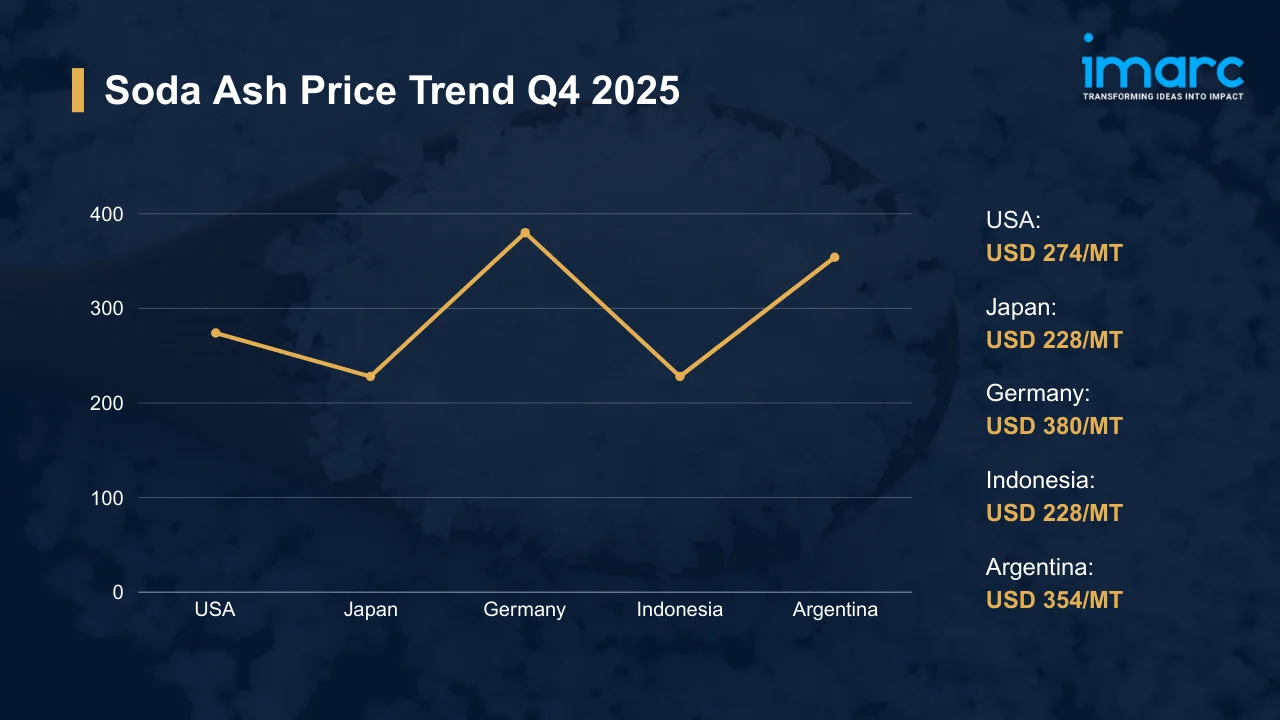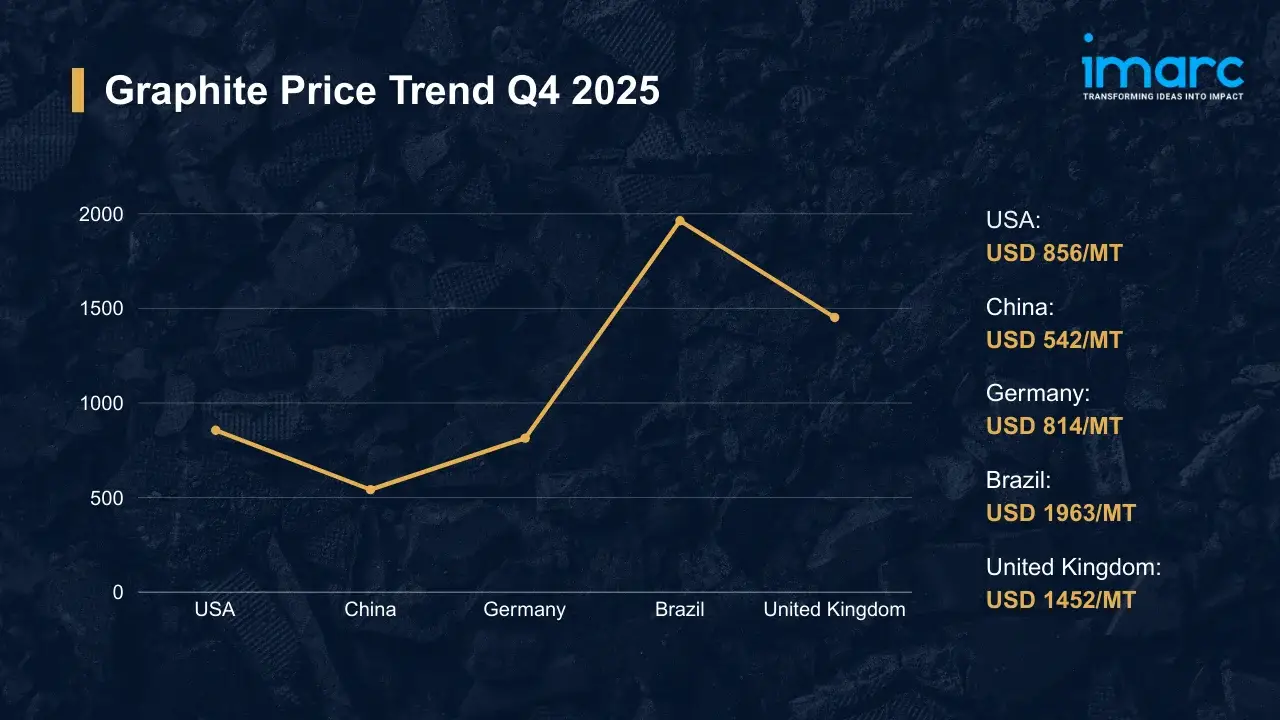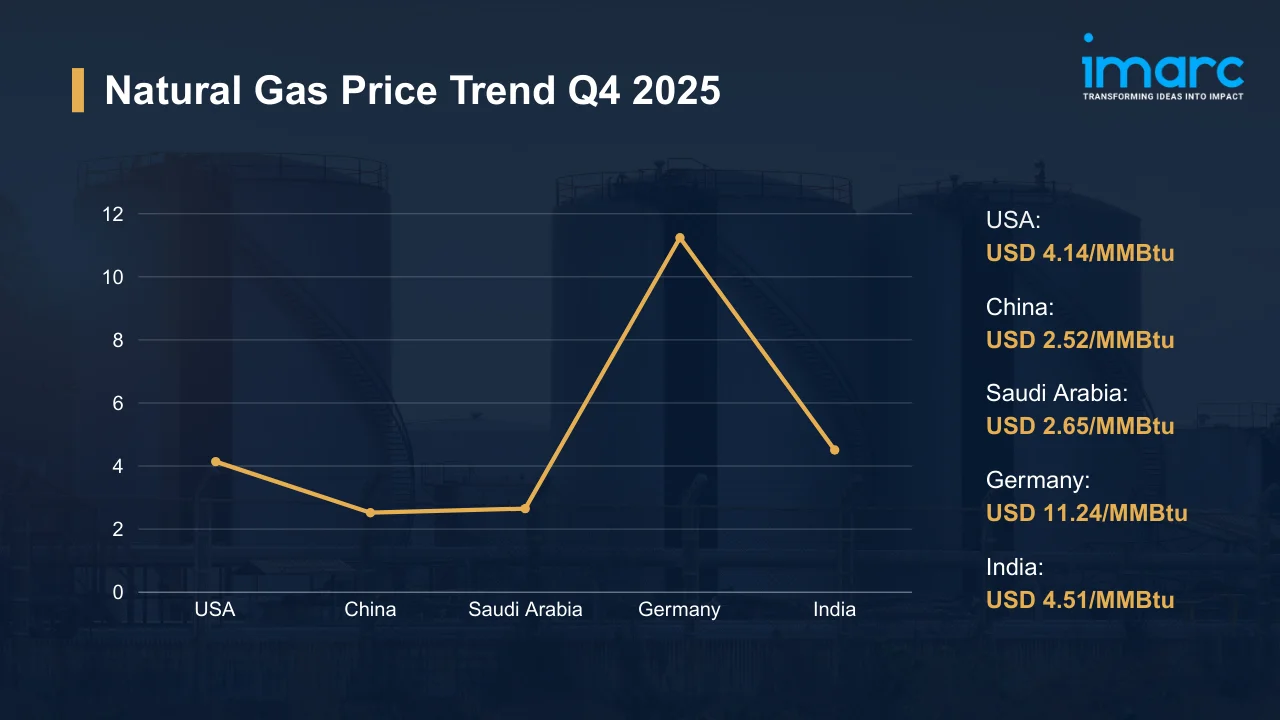Platinum Prices Quarter 2 Update: What’s Driving Demand and Supply
11-Aug-2025_11zon.webp)
Global supply chain constraints, investment activity, and industrial applications are continuing to influence platinum price trends. IMARC Group’s latest report, Platinum Price Trend, Index and Forecast Data Report 2025 Edition, provides updated Q2 2025 insights on price fluctuations, shaped by automotive demand, sustainability initiatives, and catalytic converter usage. Regional price patterns across North America, Asia Pacific and Europe, offer a clear picture of supply-demand balance and evolving sector-specific requirements.
Q2 2025 Platinum Prices:
- USA: USD 1,380/oz
- China: USD 1,456/oz
- Germany: USD 1,467/oz
- Canada: USD 2,023/oz
- France: USD 1,409/oz
_11zon.webp)
To access real-time prices Request Sample
Current platinum prices reflect the material’s critical role in automotive, chemical, medical, and renewable energy sectors. Consistent industrial demand, coupled with cautious investor sentiment and global mining dynamics, continues to support a firm global pricing trend.
Key Regional Price Trends and Market Drivers:
USA
Platinum prices in the U.S. reached USD 1,380/oz in June 2025. Prices experienced mild volatility influenced by global supply shifts and subdued speculative demand. Steady consumption in the automotive sector, mainly for catalytic converters, helped stabilize demand, while exchange rate fluctuations also shaped local price movement.
China
Platinum prices in China stood at USD 1,456/oz during Q2 2025. Market momentum remained moderate, supported by stable demand from the automotive and electronics sectors. However, slower industrial growth and currency fluctuations constrained sharp pricing shifts, keeping the domestic market aligned with broader global conditions.
Germany
Platinum prices in Germany reached USD 1,467/oz in June 2025. Demand from automotive emission technologies and industrial applications sustained market support. Although upstream supply disruptions globally elevated input costs, slow growth in the broader manufacturing sector tempered more aggressive price rises.
Canada
Platinum prices in Canada reached USD 2,023/oz during the second quarter of 2025. Market stability was driven by Canada’s dual role as both a producer and consumer. Prices tracked global mining and investment activity, with industrial demand from manufacturing and mining sectors helping to maintain firm price levels.
France
Platinum prices in France reached USD 1,409/oz in Q2 2025. Stable consumption across the automotive and chemical sectors maintained steady price levels. Fluctuations linked to international supply and exchange rate movements were offset by resilient domestic demand and purchasing trends.
Platinum Industry Overview:
The global platinum market reached a volume of 187.38 Tons in 2024 and is expected to grow to 269.00 Tons by 2033, at a projected CAGR of 3.90% during 2025-2033. Sustainability and recycling initiatives are driving demand, with major industries, particularly automotive and electronics, prioritizing resource efficiency. Programs focused on recovering platinum from catalytic converters and promoting circular economies are strengthening market fundamentals.
Additionally, platinum remains a cornerstone in high-end jewelry, prized for its luster, durability, and exclusivity. Emerging applications in hydrogen fuel cell electric vehicles (FCEVs) are expanding platinum’s strategic role in clean energy technologies. Its catalytic properties in electrochemical reactions, along with growing interest from automotive and energy firms, further reinforce its industrial relevance.
Recent Market Trends and Industry Analysis:
Platinum recycling is gaining traction as industries focus on reducing emissions and conserving natural resources. Companies are developing more sustainable sourcing models through platinum group metal (PGM) recovery from used industrial goods. New programs from major producers now offer carbon-certified, 100% recycled platinum to support green manufacturing goals.
In the automotive sector, platinum continues to be essential for FCEVs. Its catalytic efficiency enables clean hydrogen energy conversion, placing it at the core of zero-emission transport strategies. Partnerships between mining companies, automakers, and hydrogen suppliers are scaling up platinum’s use in future mobility solutions. Meanwhile, platinum’s biocompatibility ensures continued demand from the medical device industry, particularly for implants, pacemakers, and surgical equipment. The combination of chemical stability and high corrosion resistance makes it irreplaceable in critical healthcare applications.
Strategic Forecasting and Analysis:
IMARC’s report incorporates forecasting models that project near-term price movements based on evolving trade policies, raw material supply, and technological trends. These tools enable businesses to mitigate risk, enhance sourcing strategies, and support long-term planning.
Key Features of the Report:
- Price Charts and Historical Data
- FOB and CIF Spot Pricing
- Regional Demand-Supply Assessments
- Port-Level Price Analysis
- Sector-Specific Demand and Supply Insights








.webp)




.webp)












